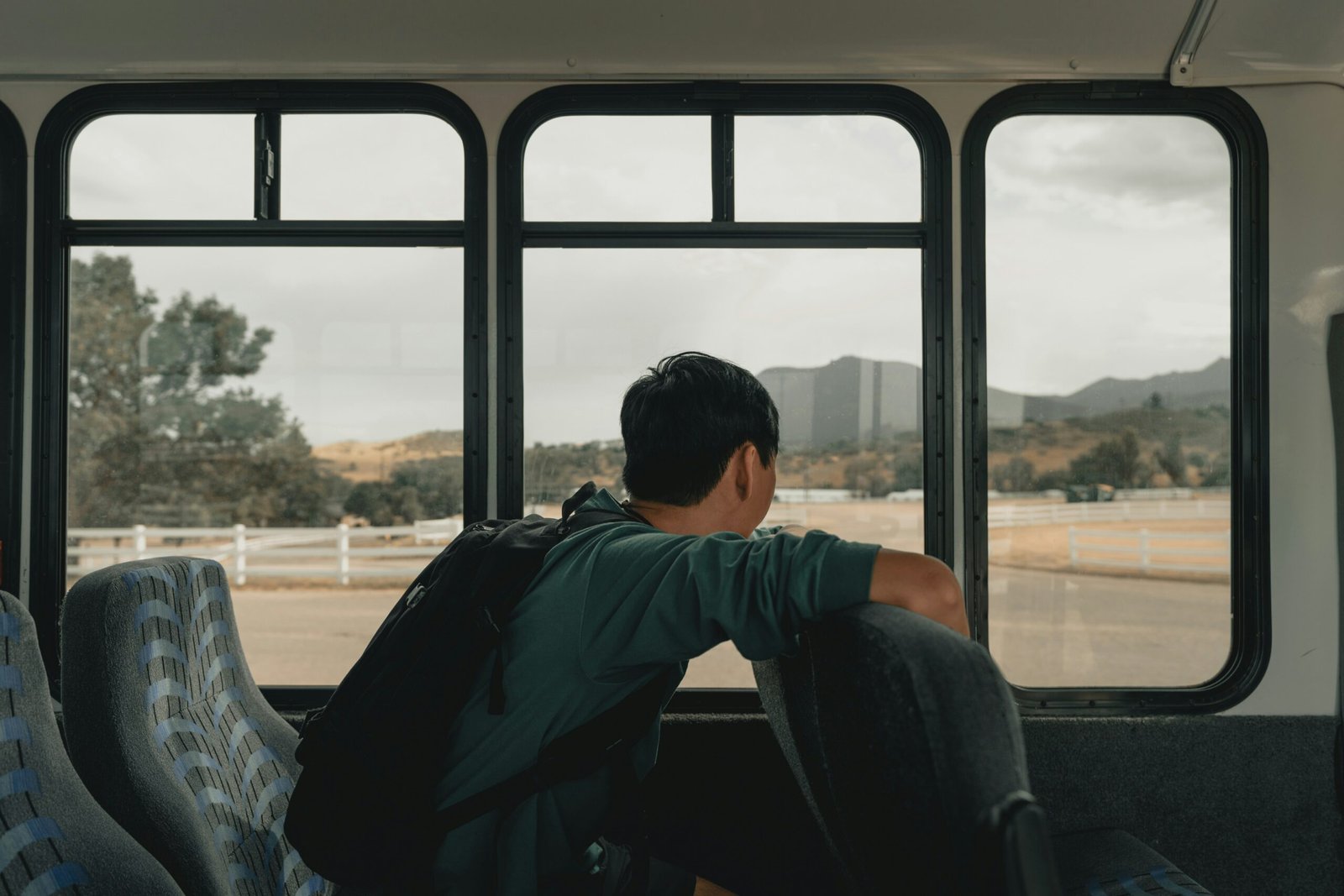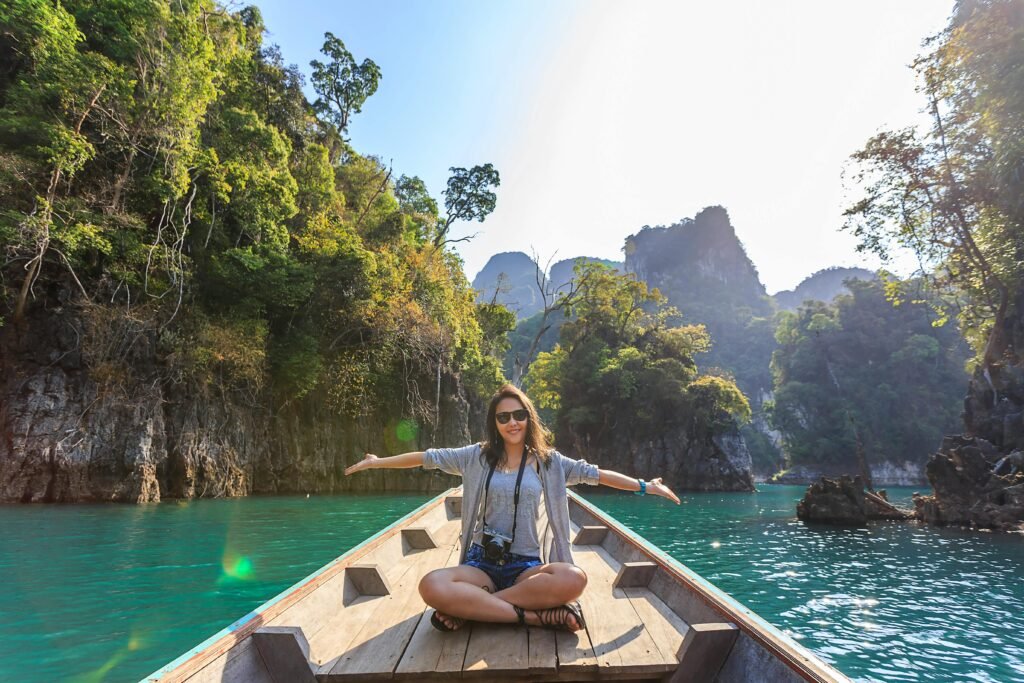Understanding Introversion and Travel
Introversion is a personality trait characterized by a preference for solitary activities and a tendency to feel drained by prolonged social interactions. This can significantly influence how introverts engage with others, particularly in contexts like travel, where social dynamics are often heightened. While extroverts may thrive in bustling environments, introverts often seek deeper connections that can sometimes feel elusive in transient spaces.

One of the defining characteristics of introverts is their reflective nature. They often prefer to think before they speak, which can be interpreted as shyness but is, in fact, a rich internal dialogue. When traveling, this introspection can sometimes complicate socialization efforts, as they may hesitate to initiate conversations or participate in group activities that are common among fellow travelers. This can contribute to a perception that making friends while traveling is a daunting task for introverts. However, it’s essential to recognize that this trait also provides a unique advantage: introverts tend to be exceptional listeners and are capable of engaging in thoughtful, meaningful discussions with those they meet on their journeys.
Moreover, introverts are often quite observant. They take the time to appreciate their surroundings and the nuances of various cultures, which can enrich interactions with new acquaintances. By focusing on quality over quantity in social engagements, introverts can form lasting connections with fellow travelers or locals willing to share insights about their shared environments. While the sheer volume of potential friends in travel scenarios may be overwhelming for those who identify as introverts, it’s often more about finding a small number of individuals with whom they can connect on a deeper level.
In the context of travel, understanding these traits can empower introverts to navigate social situations more effectively, transforming potential obstacles into opportunities for authentic connections.
The Benefits of Making Connections While Traveling
Traveling provides a unique opportunity to expand one’s social circle, particularly for introverts who might find it challenging to initiate conversations in their everyday lives. Establishing connections while on the road can significantly enhance the overall travel experience. Interacting with fellow travelers and locals allows one to engage in cultural exchanges that deepen understanding and appreciation of diverse perspectives. These encounters can transform mundane sightseeing into meaningful interactions that leave lasting memories.
Moreover, friendships forged during travel often create a sense of community and belonging, helping to alleviate feelings of loneliness that may arise in unfamiliar settings. Having friends or acquaintances in distant places can also enhance safety. When navigating through unknown territories, knowing someone nearby provides not only a support system but also a local’s insight into navigating challenges or emergencies. This added layer of security can foster a greater sense of freedom and confidence, enabling travelers to explore more fully without the constant worry of being alone.

Additionally, the bonds formed while traveling can sometimes lead to lifelong friendships. Shared experiences, such as tackling thrilling adventures or engaging in deep conversations under starlit skies, can strengthen connections that endure long after the travel has ended. These relationships often lead to future travel opportunities, as friends may invite one another to visit their home countries or explore different corners of the world together, broadening horizons even further.
In essence, making connections while traveling not only enriches the journey but also cultivates a network of friends that transcends borders. The advantages of these friendships enhance the travel experience, offering an invaluable opportunity for learning, safety, and personal growth in the realm of human connections.
Choosing the Right Travel Environment
For introverts, the travel environment plays a pivotal role in shaping their social experiences. Selecting the right destination requires considering factors that promote comfortable interactions while allowing for solitary moments. One effective approach is to seek travel accommodations that foster a communal atmosphere while maintaining personal space. Hostels, for instance, are a popular choice among travelers looking for an environment that encourages connection. These establishments often facilitate shared kitchens, lounges, and group activities, enabling guests to meet fellow travelers in a relaxed setting. Furthermore, the diverse range of personalities found in hostels offers numerous opportunities for meaningful interactions.
Another accommodation option worth exploring is homestays. Staying with local families not only provides an authentic cultural experience but also allows for intimate, one-on-one connections that larger hotels may not offer. This setting encourages dialogue and engagement in a less daunting manner, as hosts can help bridge the gap between introverted travelers and their surroundings. Additionally, homestays often provide valuable insights into local customs and activities, enhancing the overall travel experience.

Participating in social travel programs designed for like-minded individuals can also be advantageous. Many organizations offer small group tours or workshops focused on specific interests, such as photography, cooking, or outdoor activities. These programs create a safe space for introverts to connect over shared passions, allowing interactions to develop naturally without unnecessary pressure.
Ultimately, the key lies in balancing social opportunities with the essential need for solitude. By carefully selecting travel environments and accommodations that encourage interactions while remaining conducive to downtime, introverts can enjoy meaningful connections that enhance their travel experience without compromising their comfort. This mindful approach can transform a potentially overwhelming journey into a fulfilling adventure.
Utilizing Technology to Connect
In today’s interconnected world, technology plays a pivotal role in facilitating interactions among individuals, particularly for introverts who may find face-to-face engagements initially daunting. Numerous apps and platforms designed for travelers enable users to meet new people, share experiences, and build connections in a more comfortable setting. These tools can significantly enhance the process of making friends while traveling, breaking down barriers that often exist in social interactions.
One effective way to connect with fellow travelers is through dedicated travel apps. Platforms such as Couchsurfing and Meetup are particularly beneficial. Couchsurfing allows users to stay with locals for free, providing a unique opportunity to engage with hosts and meet other travelers in the area. The platform prioritizes community and connection, encouraging members to arrange meetups that can enhance the travel experience. Similarly, Meetup facilitates gatherings around shared interests, making it easier for introverts to join groups that align with their hobbies, whether that be hiking, food tours, or cultural exchanges.
Moreover, leveraging social media can also foster connections. Many introverts find platforms like Facebook and Instagram useful for engaging with other travelers. Joining travel-related groups or hashtags can lead to conversations with like-minded individuals who share travel itineraries or experiences. These online interactions can serve as a precursor to in-person meetings, providing a foundation for familiarity before face-to-face encounters.
Ultimately, technology can be an invaluable resource for introverts looking to expand their social circles while traveling. By utilizing travel apps, social media platforms, and engaging in local events, travelers can navigate their journey with the assurance that connections are readily available. Such tools not only make initiating conversations easier but also enhance the overall travel experience, creating opportunities for personal growth and genuine friendships.
Participating in Group Activities and Tours
Engaging in group activities, tours, or classes can be an excellent way for introverts to meet new people while traveling. These settings provide a low-pressure environment where individuals can bond over shared interests and experiences. By participating in local workshops, guided tours, and interest-based groups, travelers can create connections with others while enjoying the cultural and social aspects of their destination.
Local workshops, for instance, often focus on crafts, cooking, or traditional arts. Joining a ceramic-making class or a cooking lesson can serve as an ice-breaking experience, enabling participants to exchange personal stories and insights. In such informal settings, the stress of initiating conversation is decreased as everyone involved is there to learn and enjoy the experience together.
Guided tours, whether they be historical walks, nature hikes, or food tastings, offer another opportunity for meaningful interactions. Participants often share common curiosities, allowing for spontaneous conversations to develop naturally. Engaging with a knowledgeable guide enhances the experience further, as they provide insights that spark discussions among attendees. Moreover, being part of a group on a shared journey can foster a sense of camaraderie, which may lead to lasting friendships beyond the travel experience.

Interest-based groups focused on activities such as hiking, photography, or even language exchanges also facilitate connections among like-minded travelers. These groups allow introverts to engage at their own pace while immersing themselves in communities of interests. By participating in such activities, individuals not only explore new aspects of the culture but also increase their chances of forming friendships grounded in shared passions.
Ultimately, being open to participating in group activities and tours can transform the way introverts experience travel. It provides multiple avenues to meet new people, share experiences, and potentially foster long-lasting connections.
Embracing Small Talk: Tips for Introverts
For introverts, the idea of striking up a conversation with a stranger can be daunting, especially while traveling. However, mastering the art of small talk is a vital skill that can significantly enhance your travel experience by facilitating connections with others. Here are several practical tips to help you engage in small talk comfortably.
Firstly, start with simple conversation starters. These can include asking about someone’s favorite travel destination, their thoughts on the local cuisine, or recommendations for activities in the area. A question like, “What brought you to this place?” can open up the dialogue, providing insights into the other person’s travel experiences and motivating continued conversation.
Active listening is equally important in conversations. When engaging in small talk, focus on the speaker, making eye contact and nodding to show you are engaged. This not only encourages the individual to share more but also provides you with valuable context that can help you formulate your responses. Phrases like “That sounds interesting!” or “I can relate to that!” can maintain the flow of conversation and demonstrate your attentiveness.
Being attuned to social cues is also crucial for success in small talk. Pay attention to the other person’s body language and facial expressions. If they seem engaged, continue the conversation; if they appear disinterested or distracted, it may be best to graciously transition to a close. For example, you might say, “It was great chatting, I hope you enjoy your day!” This method ensures a positive interaction without undue pressure on either party.
Utilizing these techniques, introverts can gradually build confidence in their small talk abilities. With practice, engaging with others while traveling can transform into an enjoyable and enriching experience, fostering connections and friendships along the way.
Finding Your Travel Tribe
Traveling offers a unique opportunity to meet new people, and for introverts, finding a community of like-minded travelers can enhance the overall experience. Identifying travelers who share similar interests can be achieved by exploring various avenues that align with personal passions and values. One effective method is to connect through shared hobbies. Engaging in activities, such as photography, hiking, or cooking classes, allows travelers to meet others who appreciate the same experiences, fostering a natural environment for friendships to blossom.

Another approach is to attend niche meetups, which are often organized around specific interests or hobbies. Utilizing platforms like Meetup or Eventbrite can help you discover local gatherings that match your interests. Whether it is a book club, art workshop, or language exchange, these events provide an excellent way to meet individuals who share similar passions. Participating in these activities not only enriches the travel experience but also offers a relaxed way to initiate conversations.
Additionally, joining online communities related to your interests can also lead to meaningful connections while traveling. Websites such as Couchsurfing or Facebook groups dedicated to particular hobbies or travel styles allow introverts to engage with fellow travelers before meeting face to face. This prior interaction can ease the anxiety of in-person meetings, as shared values and interests have already been established.
Authenticity is essential when seeking friendships during your travels. Being genuine in your interactions fosters trust and encourages others to connect with you on a deeper level. Embrace opportunities to express your true self, and seek companions who resonate with your values. By prioritizing shared passions and engaging authentically, you can successfully cultivate your travel tribe, enriching your journeys and creating lasting memories with new friends.
Overcoming Social Anxiety and Building Confidence
For many introverts, embarking on travel adventures can evoke feelings of social anxiety, stemming from fears of unfamiliar environments and the challenge of making new connections. Such feelings are completely valid, as navigating social interactions while traveling can appear daunting. However, understanding and addressing these anxieties is essential for successfully forming friendships on the road.
One effective strategy to combat social anxiety is setting small, achievable goals for social interactions. Rather than aiming to make several new friends at once, consider initiating conversations with just one person each day. This could be as simple as striking up a dialogue with a fellow traveler or engaging with a local shop owner. By breaking down interactions into manageable steps, the process becomes less overwhelming, allowing you to gradually build confidence in your social abilities.
Additionally, practicing self-compassion is paramount. Acknowledge that it is perfectly normal to feel anxious in new situations, and recognize that many individuals experience similar feelings. Instead of harshly judging yourself for hesitation or perceived shortcomings, treat yourself with kindness and patience. Embracing a self-compassionate mindset enables you to approach social encounters with greater ease, reducing anxiety over time.
Moreover, cultivating a positive outlook on social engagement can significantly impact your experiences. Instead of viewing interactions as potential stressors, try to see them as opportunities for personal growth and connection. Remind yourself of the rewarding aspects of meeting new people and exploring diverse perspectives. This shift in mindset may make social situations feel less intimidating and more enjoyable.
By establishing small social goals, fostering self-compassion, and developing a positive outlook, introverts can effectively overcome social anxiety while traveling, paving the way for meaningful friendships and enriching experiences.
Nurturing Relationships Post-Travel
Building friendships during travel is an enriching experience, but the true challenge lies in maintaining these connections once the journey ends. To ensure that the bonds formed during your adventures last, it is essential to adopt effective communication methods that cater to the dynamics of your relationship. Social media platforms are popular tools for staying in touch, as they offer a casual and convenient way to share updates, photos, and memories. Regularly engaging with friends through likes, comments, and shares on platforms such as Facebook, Instagram, or Twitter can help keep the connection vibrant.
Another valuable method is the use of newsletters or personal updates via email. This not only gives a more personal touch but also allows for deeper reflections on shared experiences. Composing a thoughtful email about your recent life developments or recounting a treasured travel moment can invite reciprocal sharing, thus fostering a two-way relationship. Additionally, consider starting a group chat on messaging apps that can serve as a digital space for ongoing conversations and shared interests, making it easier to connect in real-time.
Planning future meetups is another way to reinforce these friendships. Create opportunities for face-to-face interactions, whether it’s a virtual coffee chat or an organized travel reunion in the future. Coordinating visits during travel or selecting a specific destination where friends can gather encourages anticipation and highlights the value of preserving these relationships. In nurturing friendships formed while traveling, commitment and effort are vital, transforming transient acquaintances into lasting bonds that enrich your life long after the journey has concluded.
